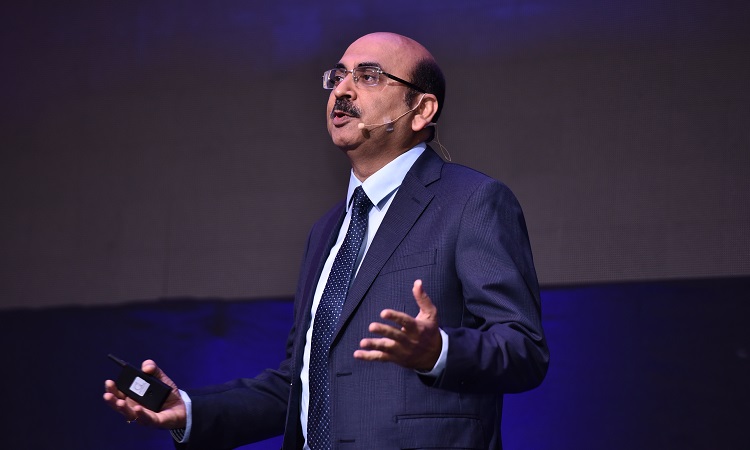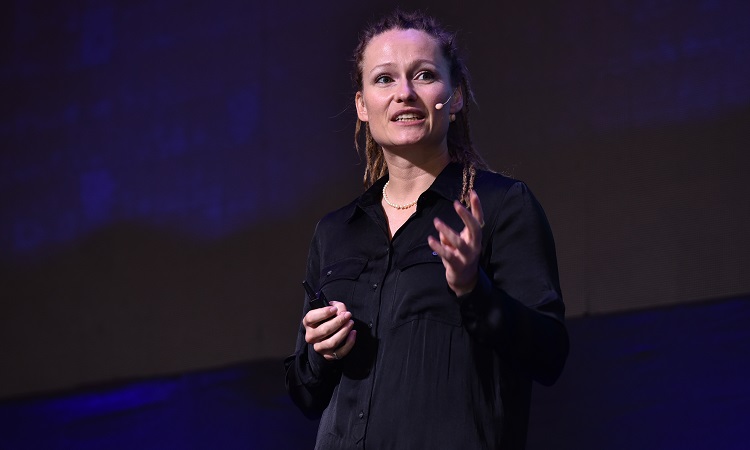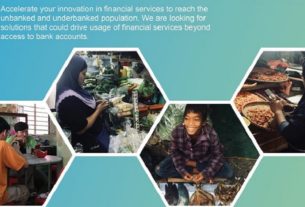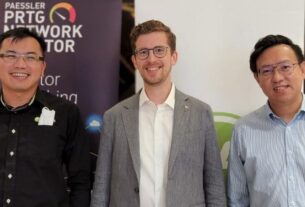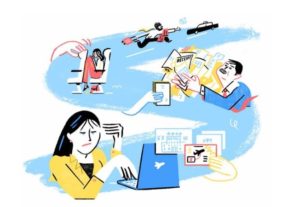SAP today hosted the Asian Innovators Summit in Kuala Lumpur, an event hailed by attendees as one of the most memorable and best technology events of the year.
There were a host of engaging speakers, including Malaysia Digital Economy Corporation (MDEC) vice president (growth ecosystem development) Norhizam Kadir, Microsoft Malaysia managing director K.Raman, Malaysia Airports Holdings Berhad senior manager (innovation) Tengku Intan Narqiah Tengku Othman, Trakomatic COO and co-founder Shaun Kwan, CTRL Global CEO Pulkit Jaiswal and AiChat COO and co-founder Kester Poh.
Representing SAP at the main plenary session were COO (SEA) Vijay Motwani (pic above), Malaysia managing director Duncan Williamson and theoretical physicist and head of innovation Dr Adriana Marais (pic below).
According to Williamson, the real critical ability for organisations today is to be able to look at patterns and connect the dots. “Business, fundamentally, has not changed,” he said.
“Where technology is concerned, it is about making technology work for you,” he further said, adding that there is now an urgent need for companies to “future proof” their business models.
“Accept that change is upon us, embrace the disruption early, understand how it will change your own playing field and then build your game plan. Business leaders need to be ahead of the curve, understand the impact of technology on your business, look for the disruption ahead of time, and future proof your business before it happens,” he emphasised.
Williamson then summarised the five factors of success in today’s ‘experience economy’:
- Firstly, growth in Malaysia is going to come from the SMEs which are the agile innovators. They form the cornerstone of the Malaysian economy with 98.5% of businesses established in Malaysia being SMEs. Currently, they contribute some 37% of the country’s GDP or an estimated Ringgit 405.5 billion.
- What is then needed is a workforce that is highly motivated, engaged, and skilled to operate in New Economy. More than anything else, the workforce needs to be capable in terms of skills and technology.
- With Industry 4.0, production, logistics, and customer services are aligning themselves with digital technology. By connecting all the components, organisations can build an end-to-end supply and value chain. This brings flexibility and leaner processes, and makes companies more agile. Importantly, Industry 4.0 needs to have the right context to be able to deliver to our consumers.
- To make all these components work together, companies need to be able to embrace everything through an Intelligence Enterprise, whether it’s connecting industry material and connecting things, people, innovation and technology. Afterwards, it is the application of Machine Learning and Artificial Intelligence to assist with speed and efficiencies.
- And then, what is needed is to able to do is to not only look at it from an operational perspective, but we also need to bring the experience that the consumer is expecting against what is currently being delivered.
An analogy is the game of chess, cited Williamson.
“In the late-1990s, a supercomputer called Deep Blue beat the Grandmaster then, Gerry Kasparov. Recently, instead of teaching computer to play the way a human plays, they use Machine Learning (ML) for the supercomputer to learn how to play chess.
“As a result, the computer is playing chess in a completely different way. As players, they are now trying to understand how the computer has learnt because it has learnt to play chess totally differently to the way humans play. That’s the power of ML and AI.
“Once we have given machines and technology the ability to learn, it will do things in a far different way and probably far better,” he explained.
“In the Intelligent Enterprise, though, we need to understand the experience everyone is having: Either as an employee, as a supplier to the business and also as a consumer. We then must be able to react to the experience immediately so that we can fundamentally change how we are doing things, and if we feeding that back into AI.
“Because that’s what going to be driving the business forward – and that’s what going to drive our growth story,” explained Williamson.
Success lies in the “experience economy”
Williamson also explained that , due to the connected world and consumers’ growing demands, companies are going to succeed or fail based on the experiences they deliver.
“These days, consumer expectations have changed in terms of timeline, with greater emphasis on speed – this is where technology comes in,” said Williamson. “If things are not quite up to mark between what’s delivered and consumer expectations, the void in between is called the ‘experience gap’. Previously, it was all about running a business efficiently. These days, it is about guaranteeing great experiences for everyday consumers – because there are now the numerous choices that disruptions have brought to the world.”
Williamson believes that SAP’s recent acquisition of Qualtrics adds a whole new dimension to SAP’s customer experience value proposition.
“The combination of Qualtrics’ experience data (X-data) with operational data (O-data) from SAP will enable businesses to manage supply chains, networks, employees and core processes better,” said Williamson.
“The next evolution of enterprise applications has already begun with a real-time connection between the system of action and the system of record. Businesses in today’s age of disruption need both trajectories to develop personalised and deep relationships with consumers,” he added.

